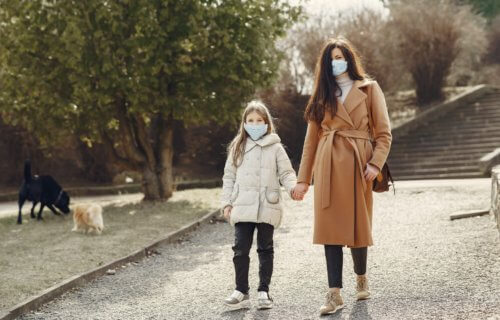AUSTIN, Texas — At the start of the coronavirus pandemic, scientists hoped the hot summer months might help reduce its spread. Although this didn’t happen, health officials have also been fearing the winter flu season will bring another wave of infections. Researchers in Texas reveal that regardless of the elements, the weather is not going to play a major role in spreading COVID-19.
A study by a team at The University of Texas at Austin finds temperature and humidity have little impact on this pandemic’s path. They add the key factor in COVID’s transmission from one person to another remains human behavior.
“The effect of weather is low and other features such as mobility have more impact than weather,” says lead researcher Dev Niyogi in a university release. “In terms of relative importance, weather is one of the last parameters.”
Summer weather didn’t stop coronavirus
The study looked at the equivalent air temperature (weather), which combined the outdoor temps with humidity to create a single value. Researchers then compared these values to coronavirus spread data from different areas in March through July 2020. These regions included U.S. states, counties, and other countries and regions worldwide.
At a state and county level, the team also evaluated what toll human interactions had on the pandemic by tracking cellphone and travel information. These observations only measured human behavior in a general sense, without accounting for weather.
The results reveal weather has nearly no influence on the spread of COVID-19. When compared to other factors of infection, the weather’s importance at the county level turns out to be less than three percent. No particular type of weather promoted or hindered the virus’s ability to spread.
On the other hand, human behavior such as taking trips (34%) and spending time outside of the home (26%) rated as the top factors for influencing COVID’s growth. Population size (23%) and urban density (13%) were ranked as the next two important measures when gauging the spread of the virus.
“We shouldn’t think of the problem as something driven by weather and climate,” says co-author Sajad Jamshidi of Purdue University. “We should take personal precautions, be aware of the factors in urban exposure.”
‘A new paradigm for studying virus exposure’
Co-author Maryam Baniasad, a doctoral candidate at Ohio State University, says most of the assumptions health officials are making about coronavirus come from laboratory data. Their study, she adds, shows how important research on real world conditions can be.
“When you study something in lab, it’s a supervised environment. It’s hard to scale up to society,” the biochemist and pharmacist explains. “This was our first motivation to do a more broad study.”
“This important work clarifies some of the innuendo about weather-COVID-19 connections and highlights the need to address science challenges at the appropriate scales,” Marshall Shepherd, an atmospheric sciences professor at the University of Georgia say. Shepherd was not part of the UT-Austin study.
Niyogi concludes the key lesson of the pandemic is the importance of examining the “human scale” in virus transmission. This would look at how people live day-to-day and find out how this impacts an epidemic.
“COVID, it is claimed, could change everything,” Niyogi says. “We have been looking at weather and climate outlooks as a system that we scale down, down, down and then seeing how it might affect humans. Now, we are flipping the case and upscaling, starting at human exposure scale and then going outwards. This is a new paradigm we will need for studying virus exposure and human environmental modeling systems involving new sensing and AI-like techniques.”
The study appears in the International Journal of Environmental Research and Public Health.
